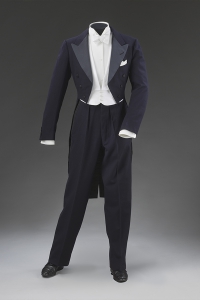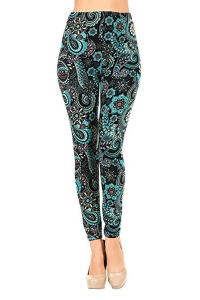Research reflects huge shifts in consumer shopping demands, accelerated by the pandemic wanting technology to heighten their experience.
Before you read any further, the statistics are simple and quite staggering, giving the fashion retail strategists a run for their money. 72% of Chinese shoppers said they find the mobile experience of scanning QR codes for garment care and recycling information appealing, while 55% of U.S shoppers and 48% of Europeans feel the same. Something to think about when it comes to sustainability?
The next big statistic will blow your mind, as 71% of fashion buyers find the concept of a digital ‘authenticity check’ service appealing. Transparency when you shop is something Fashions Finest strongly advocates and looks forward to conceptual solutions in the not too distant future which we hope will be adopted for the long term.
Avery Dennison Corporation (NYSE: AVY), published early June their Made to Mention magazine featuring research on consumer expectations of digital experiences. The research revealed useful, simple and engaging technology, both in-store and on-products, are exciting to consumers.
A standout finding of Avery Dennison’s ‘Digital Consumer Behaviour’ report is that over 90% of fashion shoppers in the U.S., UK, France, Germany and China want technology-based solutions to improve their retail experience. This reflects huge shifts in consumer shopping demands, accelerated by the pandemic.
A little background on how this data was configured. The retail and branding information company teamed up with leading audience insights company, GWI, to investigate digital consumer behaviours, surveying over 5,000 fashion consumers across the U.S., UK, France, Germany and China, on contemporary attitudes towards convenience, brand engagement, traceability, sustainability and circularity.
Concept testing was carried out to explore consumer reactions to digital technology on garments, using solutions provided by Avery Dennison.
Intelligent Labelling Tested Consumer Response
Specifically, the concept testing was deployed to discover consumers’ perceptions of digital services accessed in-store via digital labels and tags on clothing and packaging, which link to smartphone apps and data platforms.
These intelligent labels act as a digital passport or ID. They provide detail on how the garment was manufactured and its composition, while also giving a 'digital launching point' for brands to extend their relationship with their customers post-purchase.
Participants were asked to use their mobile phones to scan QR codes for instant access to product information, care instructions, recycling advice, and details of the garment’s manufacturing and supply chain journey.
Consumers desire engagement through their garments via digital IDs
Nearly three-quarters (72%) of Chinese fashion buyers questioned said they found the mobile experience of scanning QR codes appealing, while 48% of Europeans and 55% of U.S. shoppers felt the same.
Fashion buyers were interested in the following experiences:
‘Social Retail’ Experience
The ‘social retail’ experience was tested via smartphones utilising digital triggers in store.
Social retailing provides the opportunity for extended brand storytelling, and a good example of this is Burberry’s ‘custom mini program’ on WeChat that brings their Shenzhen store in China to life through exclusive content and personalised experiences.
The vast majority, 61%, said they’re likely to scan a digital trigger to view the social retail experience
'Authenticity Check’ Proved Highly Promising
The ‘authenticity check’ experience was tested using scannable digital IDs to verify brand authenticity. Overall, 71% found checking the authenticity of a garment appealing. Once again Chinese consumers were more likely to engage (79%), versus 44% in Europe and 42% in the U.S. Retailers and their customers would benefit from digital authenticity solutions to protect against counterfeiting.
‘Local Lifestyle Culture’ Experience
Local lifestyle culture refers to brand-driven campaigns that can be activated through digital triggers on products and packaging, typically leading to an app. Sixty seven percent of fashion buyers in China, 38% in Europe and 35% in the U.S. found this concept appealing.
‘Incentivised Recycling’ Might Be Adopted First Among The Retail Space
Incentivised recycling experiences refer to brand schemes that reward customers for recycling items, for instance returning unwanted garments to stores. Seventy seven percent of fashion buyers in China found this appealing, compared to 58% in Europe and 57% in the U.S.
Joining The Dots: Consumers Ready For Omni-channel Connectivity
The findings confirm that consumers want elements of the physical storefront to connect to powerful online discovery, purchase, and advocacy experiences, facilitated by technology.
Commenting on the report, Mike Colarossi, vice president, product line management, innovation and sustainability, RBIS, Avery Dennison said, “We believe the need to bridge the physical and digital worlds. Chinese fashion shoppers are famously tech-savvy, but it’s clear that services accessed through smartphones are catching the attention of European and U.S consumers too. Shoppers increasingly want to recycle or resell clothes to help slow climate change. Meanwhile brands have stories to tell, and vital information to share. Digital ID technologies and smart labelling of apparel can facilitate these connections.”
This digital consumer report was commissioned in 2021 by Avery Dennison, a global leader in innovation and materials science, branding, and manufacturing, using online research carried out by GWI. Five thousand and fifty six internet users aged 16-64 from China, the US, France, Germany and the UK were interviewed. To download a copy of the report click here.
Want more analytical based content? Sign up to our newsletter and stay up to date with the data you need.






